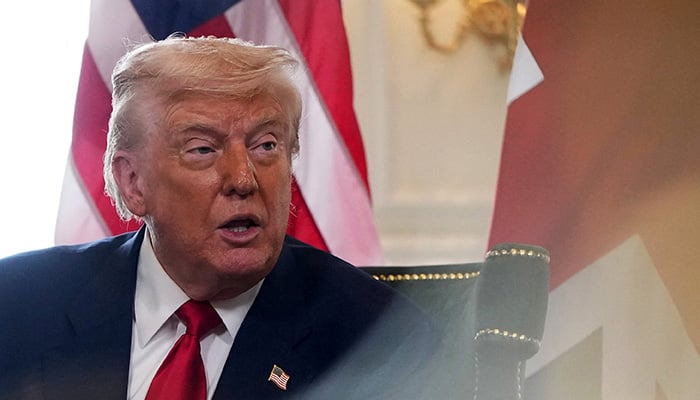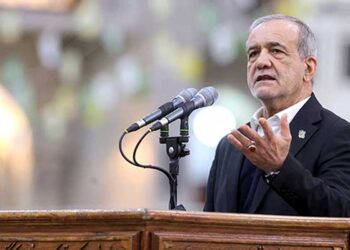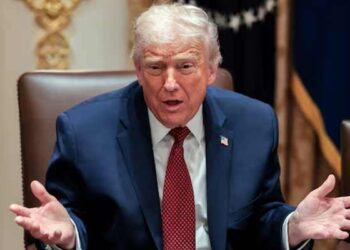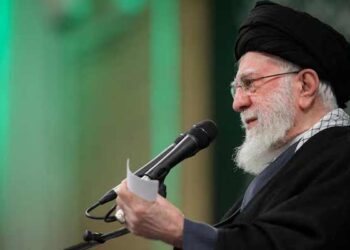Select Language:
- They [Gazan residents] need food and safety immediately, says the US president.
- Refuses to comment on Macron’s call for recognizing Palestinian statehood.
- PM Starmer describes the situation in Gaza as “completely unacceptable”.
President Donald Trump announced Monday that the U.S. plans to establish “food centers” in Gaza to help prevent a worsening hunger crisis in the conflict-torn Palestinian region.
“We will set up food stations where people can freely walk in — no borders, no fences,” he told reporters in Scotland, where he was meeting with UK Prime Minister Keir Starmer.
During the same briefing, Starmer stated that he and Trump concurred on the need for a ceasefire in Gaza, and they discussed plans for the post-aid phase.
Trump emphasized that feeding the population is the top priority, citing the presence of many starving individuals, and clarified he wouldn’t take a stance on Palestinian statehood now.
The U.S. has allocated $60 million for humanitarian assistance, with additional contributions expected from other countries.

He added that he spoke with European Commission President Ursula von der Leyen on Sunday, who indicated European nations would significantly increase their support.
Trump also planned to discuss the humanitarian crisis with Starmer during his visit.
“We’re providing substantial funds and food aid, and other nations are stepping up now,” he explained. “It’s a disaster. Immediate food and safety are critical.”
Starmer agreed, describing the crisis as “catastrophic” and expressing outrage over the images coming out of Gaza.
The UK Prime Minister labeled the Gaza humanitarian situation as “completely intolerable” and urged swift delivery of food aid into the enclave.

“We need to mobilize other nations to support aid efforts, and that involves applying pressure on Israel because this is a true humanitarian crisis,” he stated.
Trump declined to comment on French President Emmanuel Macron’s proposal to endorse Palestinian statehood.
Trump also criticized Hamas for not releasing more hostages, both alive and dead, and mentioned he advised Israeli Prime Minister Benjamin Netanyahu that their current approach might need adjustments.
“I told Bibi that perhaps there’s a different way to handle it,” Trump said, reiterating similar remarks from Sunday.
When asked if a ceasefire remains feasible, Trump responded, “Yes, a ceasefire is possible, but it must be achieved.” He did not elaborate further.
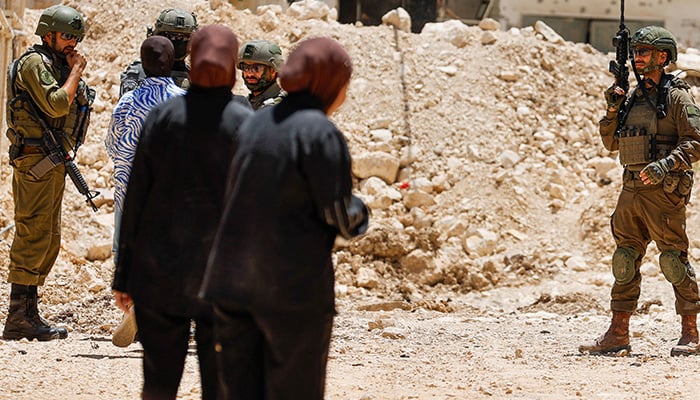
Trump stressed the importance of securing the release of hostages held by Hamas in Gaza, noting the group has shifted its stance and is now refusing to free more captives.
Hamas has indicated willingness to release hostages if a ceasefire agreement is reached with Israel.
The group submitted its response to a US-backed ceasefire proposal in Doha on Thursday. Israel, however, withdrew its delegation shortly after.
Trump added that Israel would need to decide its next steps, implying he has his own opinions but refrained from sharing them publicly.
Over the weekend, Israel conducted an airlift and implemented measures to facilitate aid access, including daily humanitarian pauses in three Gaza zones and establishing new safe corridors for convoys. Nonetheless, UN agencies say these actions are not enough to prevent famine conditions.

On Monday, Gaza’s health authorities reported at least 14 deaths in the past 24 hours from starvation and malnutrition, bringing the death toll caused by hunger to 147, including 89 children, mostly in recent weeks.
Israel has blockaded all supplies into Gaza since early March, partly reopening the territory with new restrictions in May. Israel maintains that it follows international law and is justified in preventing aid from being diverted by militants, blaming Hamas for Gaza’s suffering.

